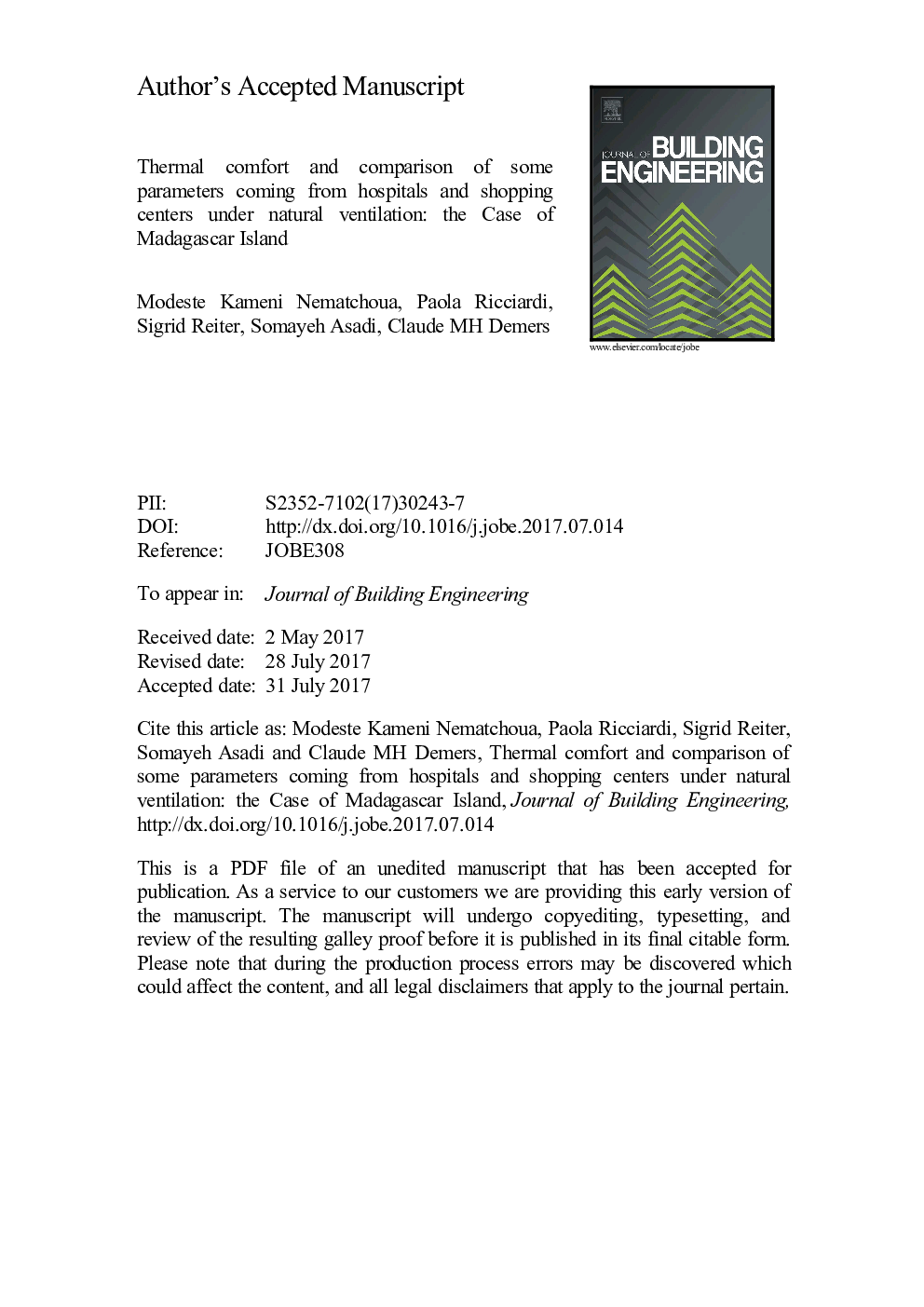| Article ID | Journal | Published Year | Pages | File Type |
|---|---|---|---|---|
| 4923068 | Journal of Building Engineering | 2017 | 29 Pages |
Abstract
Nowadays, in several countries in the tropical islands of the Indian Ocean, including Madagascar island, Comores island, Seychelles island and Mayotte, no adopted and regulated building standards exist. Human health essentially depends on the quality of indoor air, and so several actions should be taken to solve this problem. The purpose of this study is to develop a database of thermal comfort in naturally ventilated buildings in order to improve indoor air quality, mainly in hospitals and shopping centers in the largest island of the Indian Ocean. To achieve this objective, and due to a lack of data regarding comfort in built environments in this region, experimental and subjective studies were carried out in 5 big hospitals and 50 small and large shopping centers, distributed in 25 districts of urban areas in Northern Madagascar. The adaptive approach was used for this purpose. A specific questionnaire based on the ISO7730 and 10551 was designed to collect these data. A total of 400 people participated in this study, and the survey was conducted during rainy and dry seasons. This study discusses the influence of gender, clothing, activities, voters' mind state and occupants' control strategies on adaptive comfort assessment. In addition, various comfort parameters were calculated for these buildings. Results show that, in both studied places, the lower and upper acceptable temperatures for 80% of the voters were 23.2 °C and 26.8 °C, while 90% of the customers and patients reported a comfortable temperature range of 24.5-26.2 °C. This will help to define proper guidelines to build more comfortable buildings in Madagascar and other countries of the Indian Ocean.
Keywords
Related Topics
Physical Sciences and Engineering
Engineering
Civil and Structural Engineering
Authors
Modeste Kameni Nematchoua, Paola Ricciardi, Sigrid Reiter, Somayeh Asadi, Claude MH Demers,
